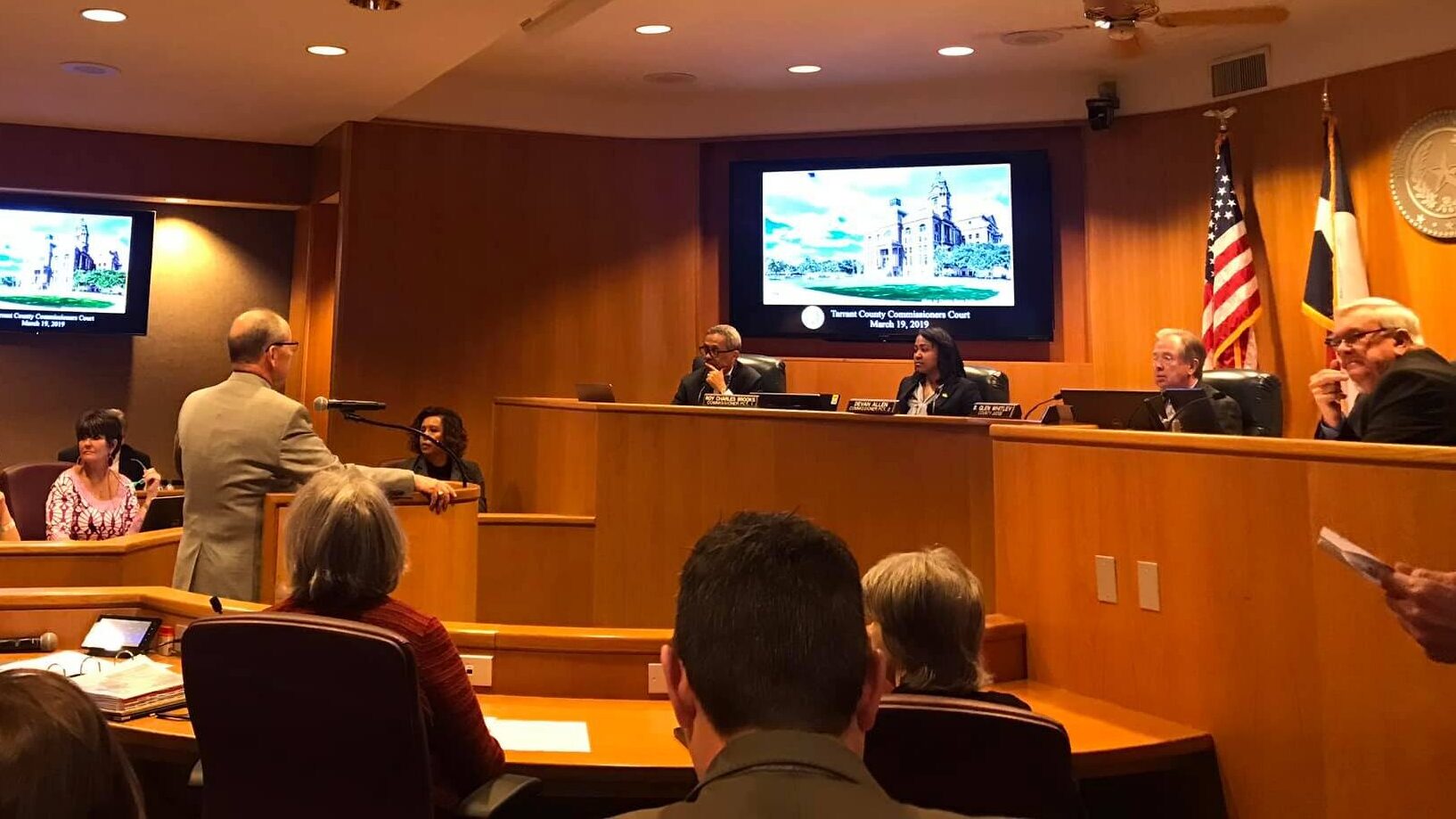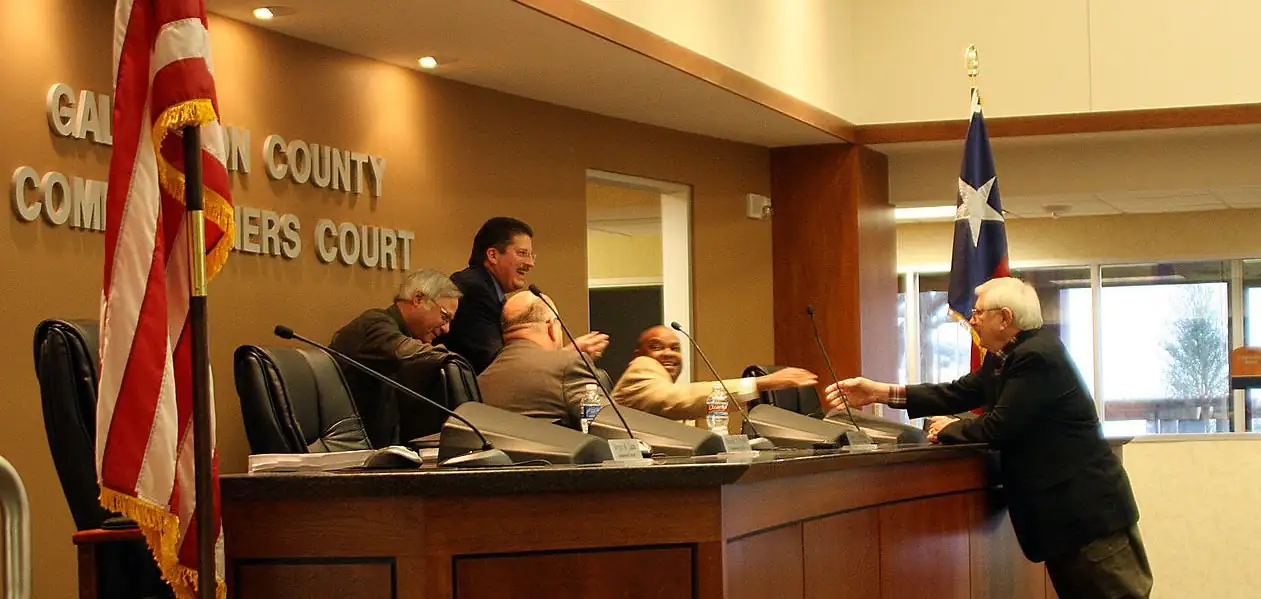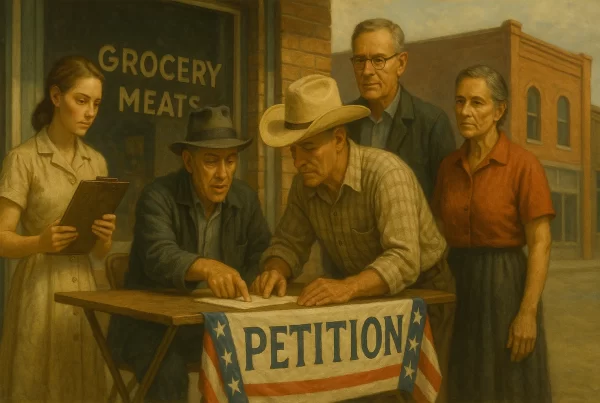Commissioners courts are the governing bodies of Texas counties, akin to county councils or boards of supervisors in other states. The county commissioners court conducts the general business of the county, including adopting the county’s budget and tax rate, authorizing contracts, filling vacancies, and setting salaries of county employees.
Each commissioners court in Texas has five members: the county judge and four commissioners. The commissioners court fulfills a mix of legislative and executive functions, and the judge may fulfill judicial functions. In total, Texas has 254 counties (map), which means that there are about 1,000 county commissioners serving in Texas at any given time, and 254 county judges, if all the positions are filled.
Despite the name, Commissioners Courts do not have judicial powers. The County Judge, while presiding at the Commissioners Court, does not render judicial rulings.
In Texas, “commissioners court” is customarily spelled without an apostrophe.
Elections of County Commissioners

County commissioners are elected in local precinct elections and each serve a four-year term.1 Since each county in Texas has four precincts, each commissioner represents about one-fourth of the county population, though the exact population distribution can vary slightly depending on how the precincts are drawn.
Elections are staggered so that the entire commissioners court cannot change in a single election. Instead, two commissioner seats are up for election every two years.2 This system of staggered terms ensures a degree of continuity and experience on the commissioners court, no matter the result of any single election, while still allowing voters to change the political composition of the court over several election cycles.
Similarly, each county judge is elected to serve a four-year term, though judges are chosen in countywide elections and not precinct-level voting.
Conduct of Meetings
County commissioners courts meet and conduct their business like a very small legislative body, or like a city council. Three voting members of the commissioners court constitute a quorum.3 The county judge serves as the presiding officer, while the county clerk is charged with keeping the minutes of the court meetings.

Meeting of the county commissioners court must be open to the public, except in limited circumstances when sensitive issues like contract negotiations, real estate negotiations, or security issues need to be discussed. The requirements of the Texas Open Meetings Act apply, which means that agenda times must be posted at least 72 hours in advance and the public must be given a chance to give input on the agenda.
Many counties livestream meetings for transparency.
Commissioners courts in Texas operate similarly to the “weak” mayor-council system; the county judge has no veto power over the court and votes along with the other commissioners.
County commissioners meet in a variety of settings, depending on the county. In rural counties, commissioners courts often continue to meet in historic county courthouses constructed in the late 1800s or early 1900s, whereas commissioners in urban counties often meet in larger and newer administrative headquarters.


Executive Functions
Each county commissioner, in addition to serving as a voting member of the commissioners court, may oversee services within their precinct, especially in rural counties lacking full departments. For example, commissioners sometimes oversee solid waste collection, parks, or other services within their precinct.
However, in urban counties, the delivery of county services is frequently consolidated in county-wide departments, with the bulk of a commissioner’s time being devoted to meetings and other business of the commissioners court.
Similarly, the county judge fulfills certain executive functions, including ceremonial duties and emergency powers. Thus, the members of the county commissioners court fulfill a mix of legislative and executive functions.
Limitations of Commissioners Courts
Although each commissioners court controls the budget, finances, and policies of a county, it has only limited powers over certain executives within the county government. That’s because tax assessor-collectors, sheriffs, clerks, and certain other county executives are elected independently—not hired. As such, these officials are politically accountable to the voters, not to the county judge or commissioners court, though they must comply with the budget and policies set by the latter.4

In this sense, commissioners courts are powerless to control the day-to-day workings of various departments of the county, despite their titular role as the ‘governing body’ of the county. This system is a decentralized one, which divides power among various elective offices, similar to the way the Texas government is designed at the state level as well.
Even so, county commissioners have broad policy-making authority, and play a critical role in the functioning of local government in Texas.
Qualifications for Office
Candidates must meet the following qualifications to serve as a county commissioner:5
- U.S. citizen
- Resident of Texas for at least 12 months prior to the election
- Resident of the precinct for at least 6 months prior to the election
- Registered to vote in the precinct where they are seeking office
- At least 18 years of age
- No felony convictions (unless rights are restored).
Continuing Education: Additionally, county commissioners are required by law to complete 16 hours of training annually, with some exceptions.6



